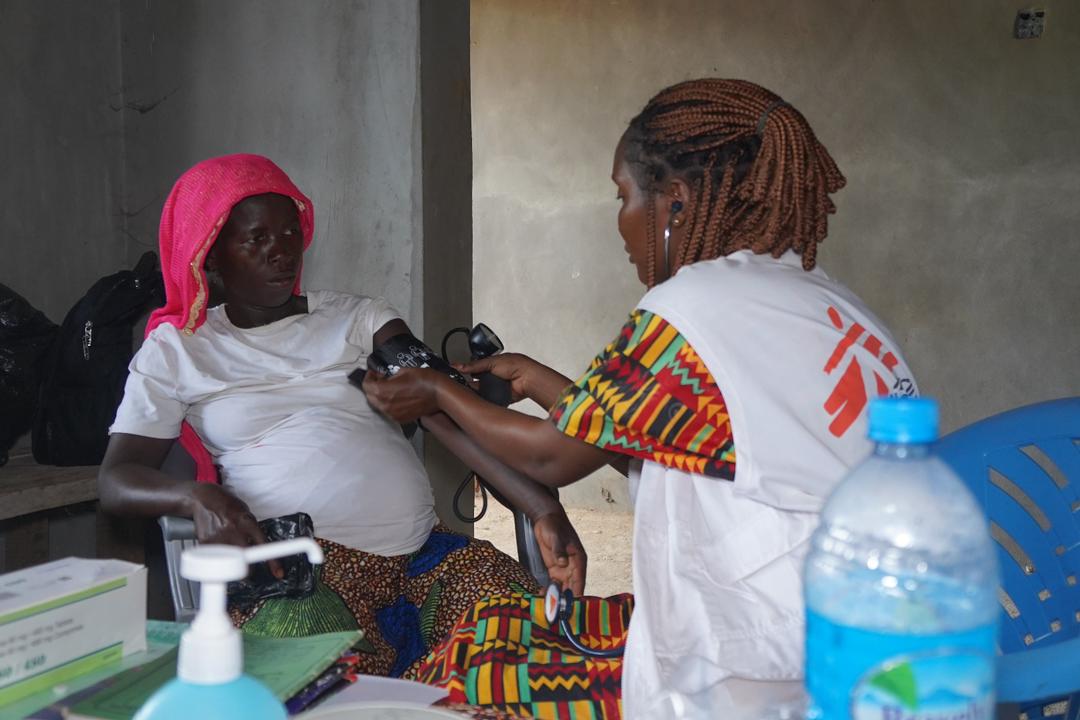In Sierra Leone, a persistent and deeply troubling issue continues to cast a shadow over the lives of its women: maternal mortality. Despite commendable progress made in various sectors, Sierra Leone is still grappling with a severe crisis that threatens the lives of mothers during childbirth.
According to the World Health Organization’s statistics from 2020, Sierra Leone ranked 18th in maternal deaths, with an estimated 443 maternal deaths per 100,000 live births. This stark reality underscores the urgent need for sustained efforts to improve maternal healthcare in the country.
Sierra Leone’s battle with maternal mortality is multi-faceted. The challenges are deeply rooted in geographical and infrastructural constraints. Many women in Sierra Leone reside in remote, rural areas, far from healthcare facilities. The arduous journey to reach a hospital, often exacerbated by poor road conditions, can become a life-or-death race against time.
Compounding the problem, Sierra Leone faces a nationwide shortage of ambulances, making timely transportation to healthcare facilities a daunting task. Furthermore, there is a lack of proper patient referral mechanisms, meaning that by the time a woman experiencing complications in childbirth manages to reach a hospital, it may already be too late.
“Late referrals can be fatal, and some medical complications could be avoided if women with obstetric emergencies were able to reach health facilities on time,” warns Amadu Musa, a nurse at Médecins Sans Frontières (MSF)’s mother and child hospital in Hangha, Kenema district.
The consequences of these challenges can be devastating. One tragic example comes from Daama village, located approximately two hours from the MSF-run hospital in Kenema. Here, a pregnant woman was referred to the hospital far too late. When doctors performed a scan, they discovered that the baby did not have a heartbeat, and the mother was in a critical condition.
Efforts to combat maternal mortality in Sierra Leone are ongoing. Organizations like MSF play a critical role in addressing this pressing issue. MSF teams in Kenema, Mile 91, and Magburaka provide emergency obstetric and newborn care, performing life-saving procedures such as emergency caesarean sections.
In the first seven months of 2023 alone, these teams have assisted 3,326 women in delivering their babies, with 505 of them undergoing emergency caesarean procedures. These numbers reflect the undeniable impact that dedicated healthcare professionals can have in the battle against maternal mortality.
Moreover, MSF operates an ambulance service designed to swiftly transport pregnant women and children in need of emergency care to hospitals. The importance of such services cannot be overstated, as timely intervention is often the difference between life and death for expectant mothers.
Kennedy Uadiale, MSF’s medical coordinator in Sierra Leone, emphasizes, “A good referral system is key and needs to be prioritized to ensure a decrease in maternal and neonatal mortality and save more lives.”
Between January and July 2023, MSF’s eight ambulances transferred 372 pregnant women and new mothers with their babies to hospitals for emergency care. These women faced a range of life-threatening conditions, including pregnancy-induced hypertension, post-partum hemorrhage, anemia in pregnancy, and antepartum hemorrhage.
MSF’s commitment extends further. They reimburse women for the cost of taking a motorbike-taxi, often the only available means of transportation in these remote areas, to health facilities. In the first seven months of 2023, they supported 900 trips, ensuring that women can access the care they need in a timely manner.
Albeit MSF support, much more is needed to cover the gaps, hence it is imperative that donors and partners both national and international invest in the referral of patients through ambulances, and motorbikes. Each life saved is a testament to the resilience and determination of the women of Sierra Leone and a reminder that the fight against maternal mortality must continue with unwavering dedication.


